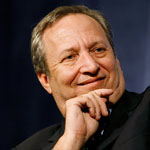
When Sir David Attenborough (pictured left) began his illustrious career in television, almost 60 years ago, the population of the world was a third of what it is today. The country's best-known naturalist and broadcaster now finds the prospect of even more people to be so "frightening" that he has become a patron of the Optimum Population Trust (OPT), a campaign group that seeks to bring about a substantial decline in numbers through encouraging birth control. "Population is reaching its optimum and the world cannot hold an infinite number of people," says Sir David. It is undoubtedly the case that the world's population has grown to levels that a few generations ago would have been considered unimaginable. But is the trend as unsustainable as Sir David fears? … But how stable will this really be? After all, just because predictions of doom have been wrong in the past does not mean they are wrong now. Sir David will almost certainly be familiar with Collapse by Jared Diamond, which considers the failure of isolated societies (such as Easter Island). It makes for a depressing read. Diamond writes: "Countries that are environmentally stressed, overpopulated, or both, become at risk of getting politically stressed, and of their governments collapsing. When people are desperate, undernourished and without hope, they blame their governments, which they see as responsible for or unable to solve their problems. They try to emigrate at any cost. They fight each other over land. They kill each other. They start civil wars. They figure that they have nothing to lose." – UK Telegraph
Dominant Social Theme: Beware the masses, lest they blame their governments.
Free-Market Analysis: Sir David Attenborough's perceptions may be heartfelt; however, they are neither unique nor especially accurate. Unfortunately, views such as those Attenborough holds have been gaining ground within the mainstream press and governmental types during a time of economic crisis, even as they are losing ground on the Internet and elsewhere. A crisis is a terrible thing to waste.
Let's stick to Attenborough's concerns to see why such formulations are ultimately inaccurate. Certainly they are not rooted in economic literacy. The idea that too many people are going to ruin the planet and their own lives in the process has been around a long, long time, and has rarely if ever proven correct – at least in the largest sense. In fact, naive trend-analysis that takes a specific series of points in time and extends them ad infinitum until a point of catastrophe is reached is a big part of what divides modern and classical economics.
The idea of extrapolating trends is both comforting and comfortable. But it does not work in private enterprise, because those responsible for real profit must deal with real world results. But trend-extrapolation is money in the bank for many a civil servant and career bureaucrat. In fact, one can take almost any trend and discover some sort of disaster if the trend proceeds far enough. And every disaster foretold needs a good deal of government funding to avert it! This explains why most governmental entities consistently manufacture distressing scenarios – starvation, illness, drought – that require an immediate influx of resources.
Such distressing predictions sound reasonable, especially when buttressed by convincing numbers. However, the reason why they do not occur is one of the most magnificent and little promoted insights of economic observation. They do not occur because of the free-market concept known as "human action." It is, in fact, the marketplace itself that generates the human action that averts the calamity. Human action takes place when individual humans realize that their lives and the lives of their loved ones, friends and neighbors are in jeopardy. To avert jeopardy they may act alone or band together. Yes, it is an easily observable truth of human behavior, even though it is not fashionable to acknowledge it.
The dividing line between the kind of classical economics practiced by Thomas Malthus and that which is theoretically accepted today is basically human action. Malthus's economics were essentially static. Marx, too, is a classical economist. Malthus and Marx would have had a great deal of difficulty with the idea that human action is the ultimate arbiter when it comes to both pricing and economic reality. Unfortunately, so would Sir David Attenborough, it seems.

Where does this leave us? Those in government and even in economics have powerful incentives to employ classical trend-analysis while paying lip service to modern economics – which doesn't recognize it. The politics of scarcity will remain attractive to bureaucrats and a certain class of economists, even as they are increasingly repugnant to those who value and understand free markets. Sadly, the politics of scarcity will continue to support Western public policy for the foreseeable future, even though we know better. And we do.
